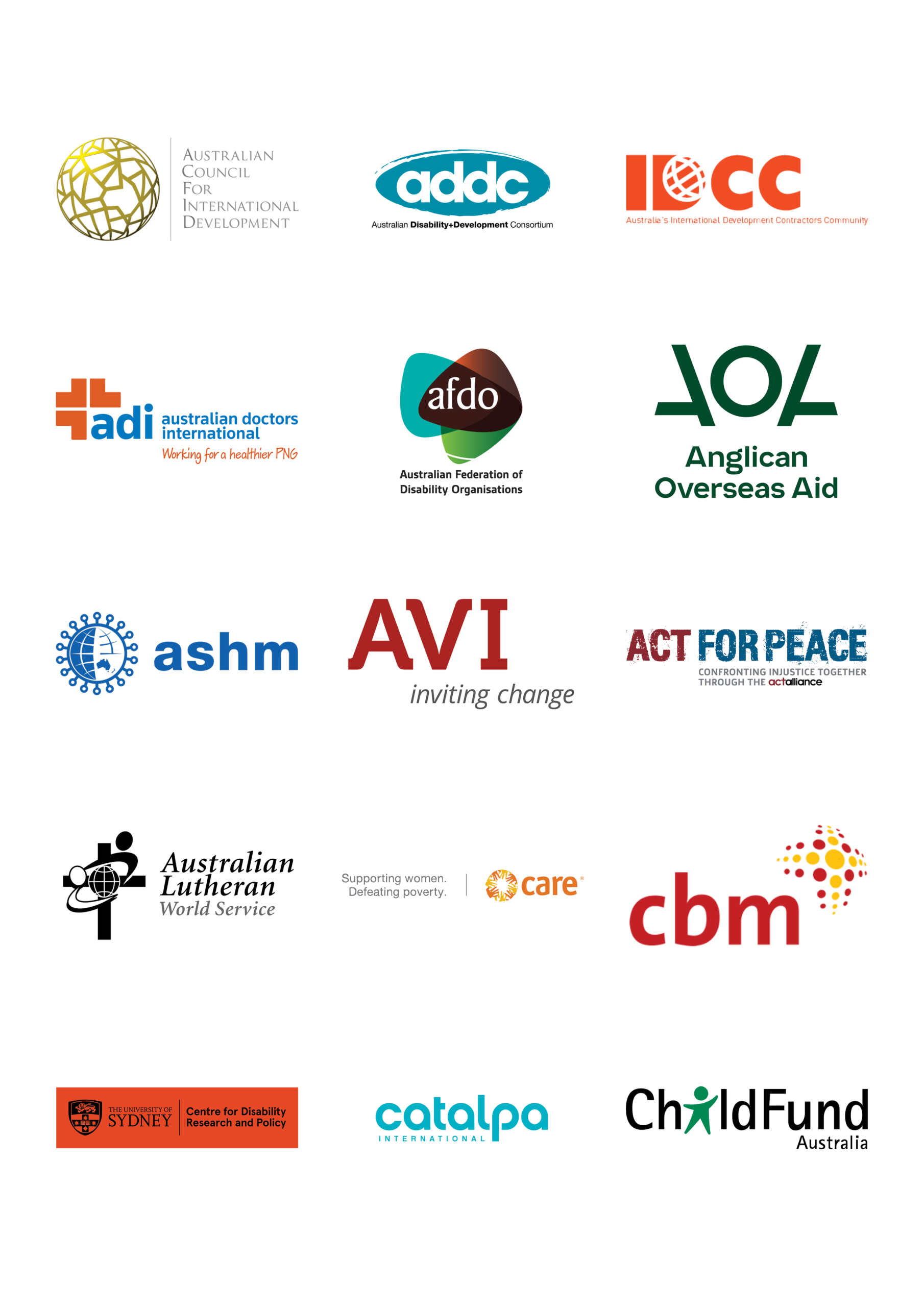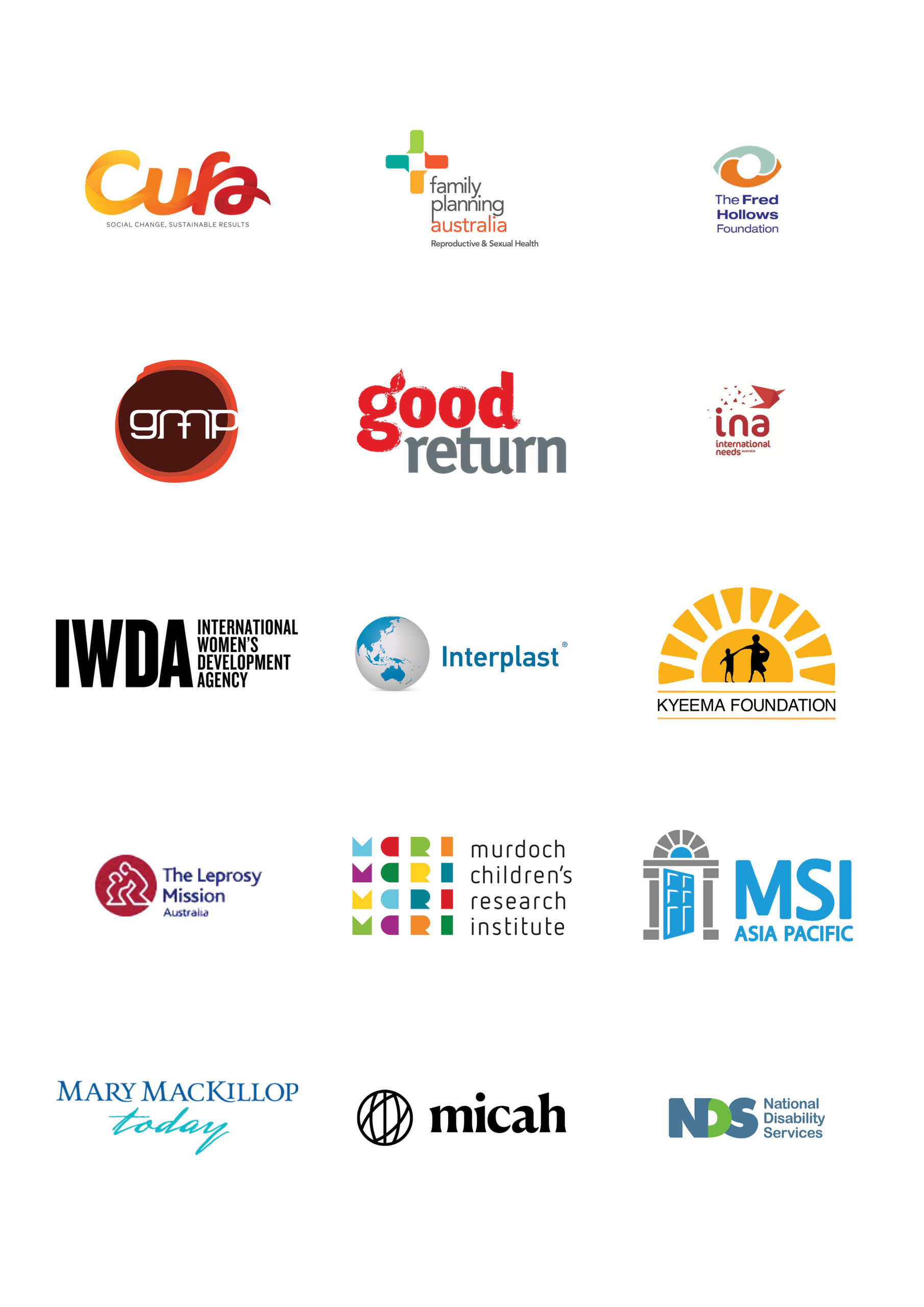Joint Call for Action on Disability Equity
ADDC with ACFID is being joined by 42 organisations across the Australian international development and disability sectors to call on the Australian Government to commit to long-term resourcing for disability equity and rights in the international development program.
Support for the Joint Call from Australian Leaders
Leaders from across the Australian international development and disability sectors have rallied behind the Joint Call for Action on Disability Equity, calling for the forthcoming International Disability Equity and Rights strategy (IDEARS) to be ambitious, accountable and resourced.
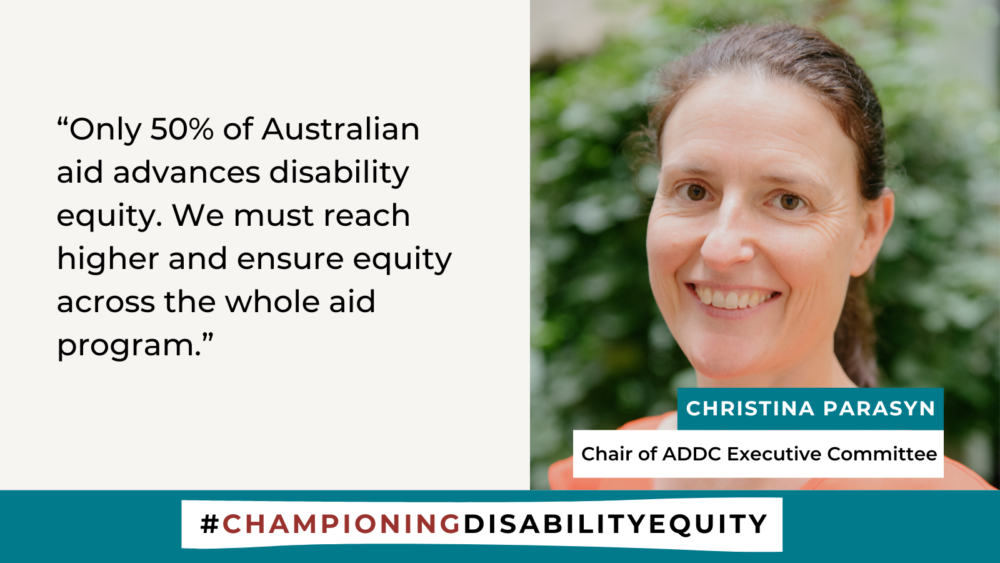
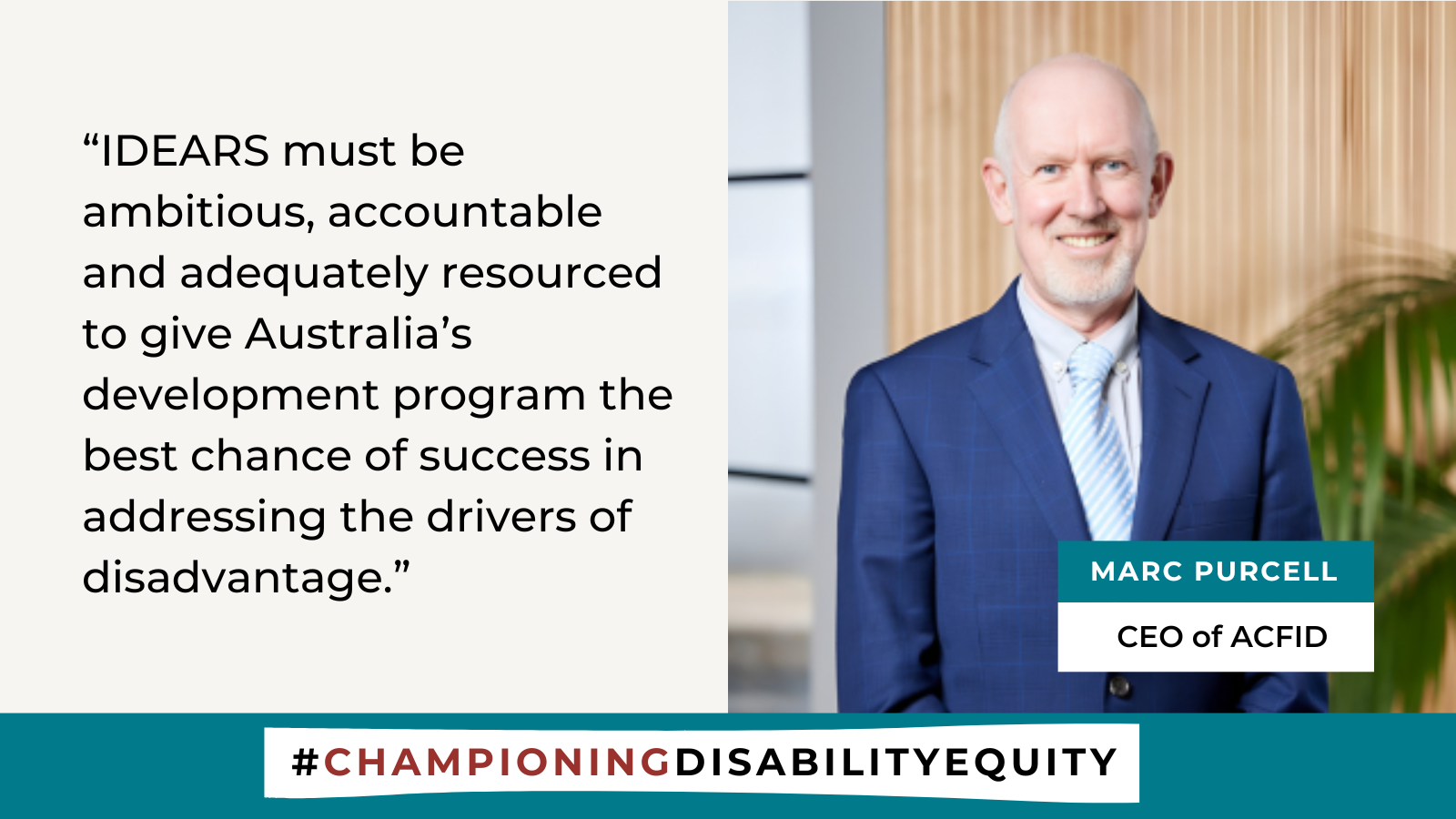
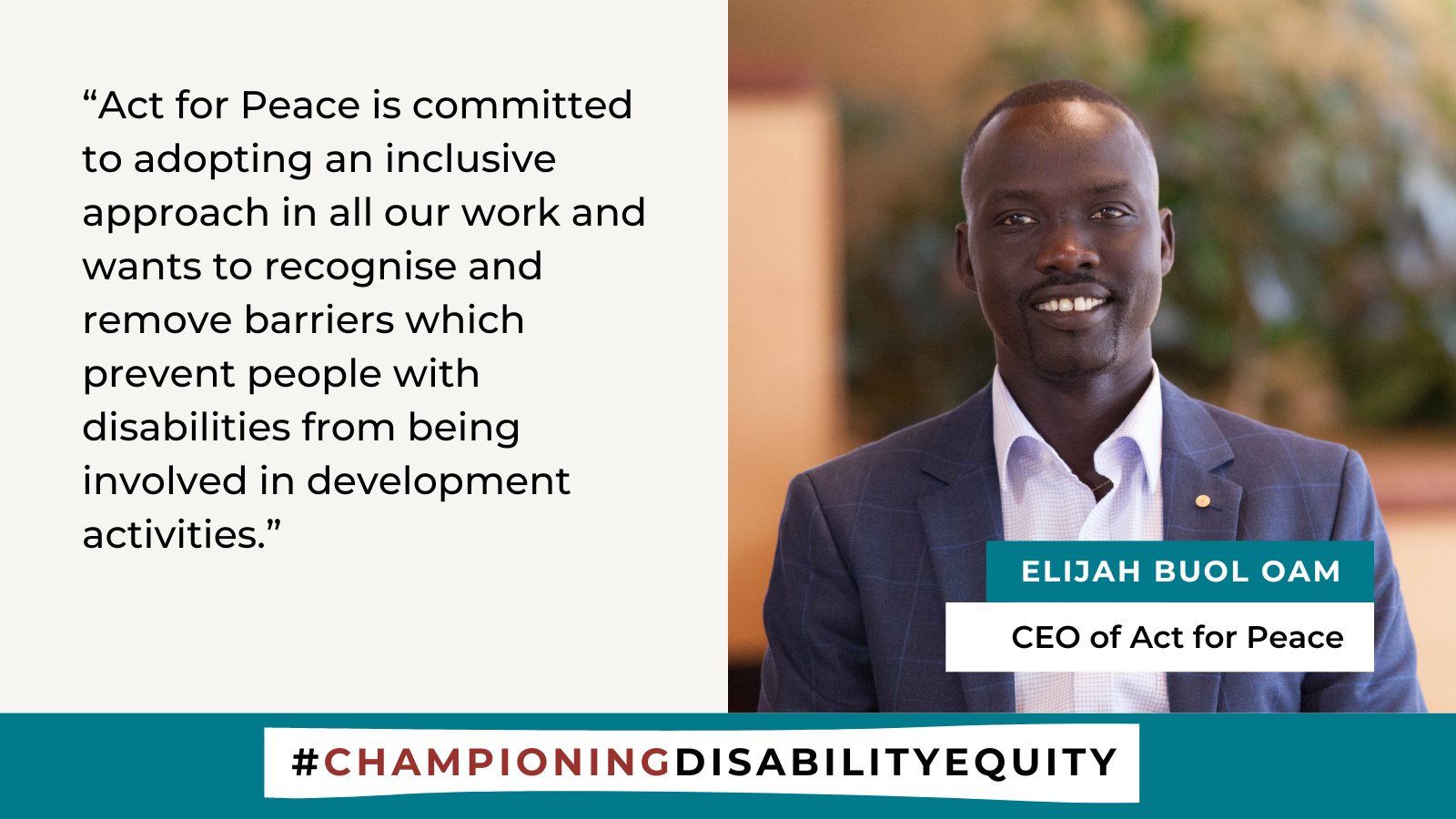
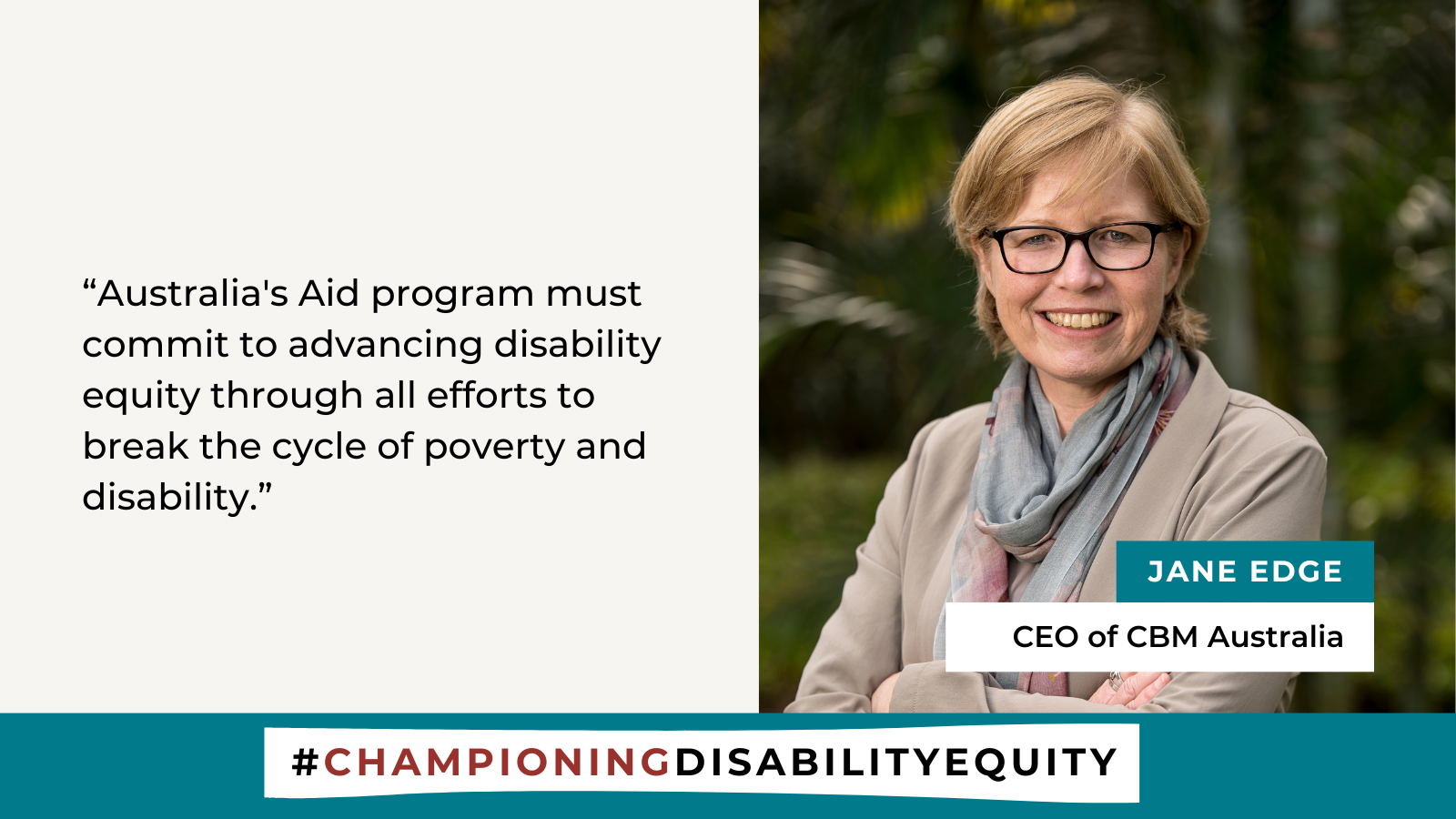
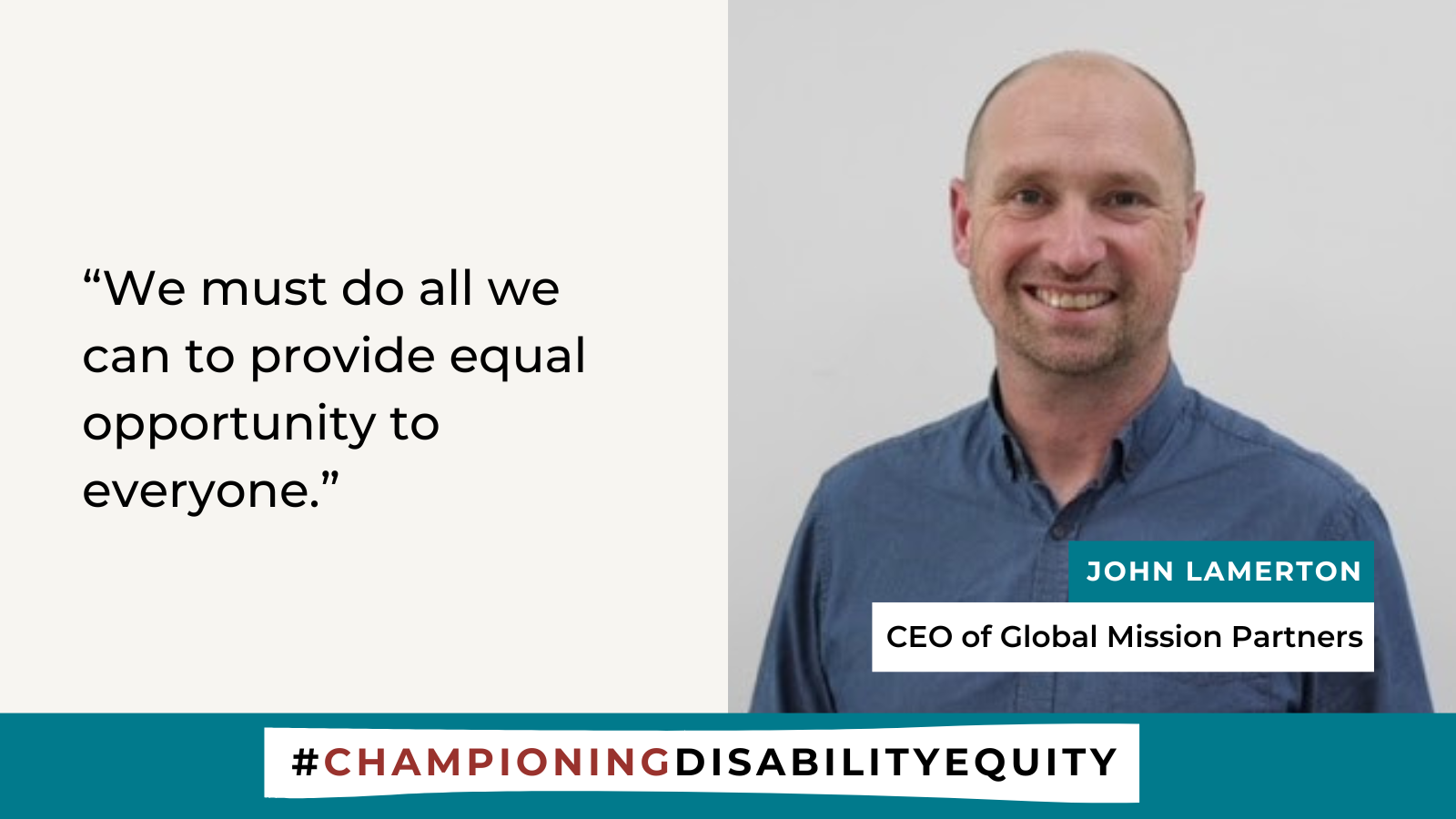
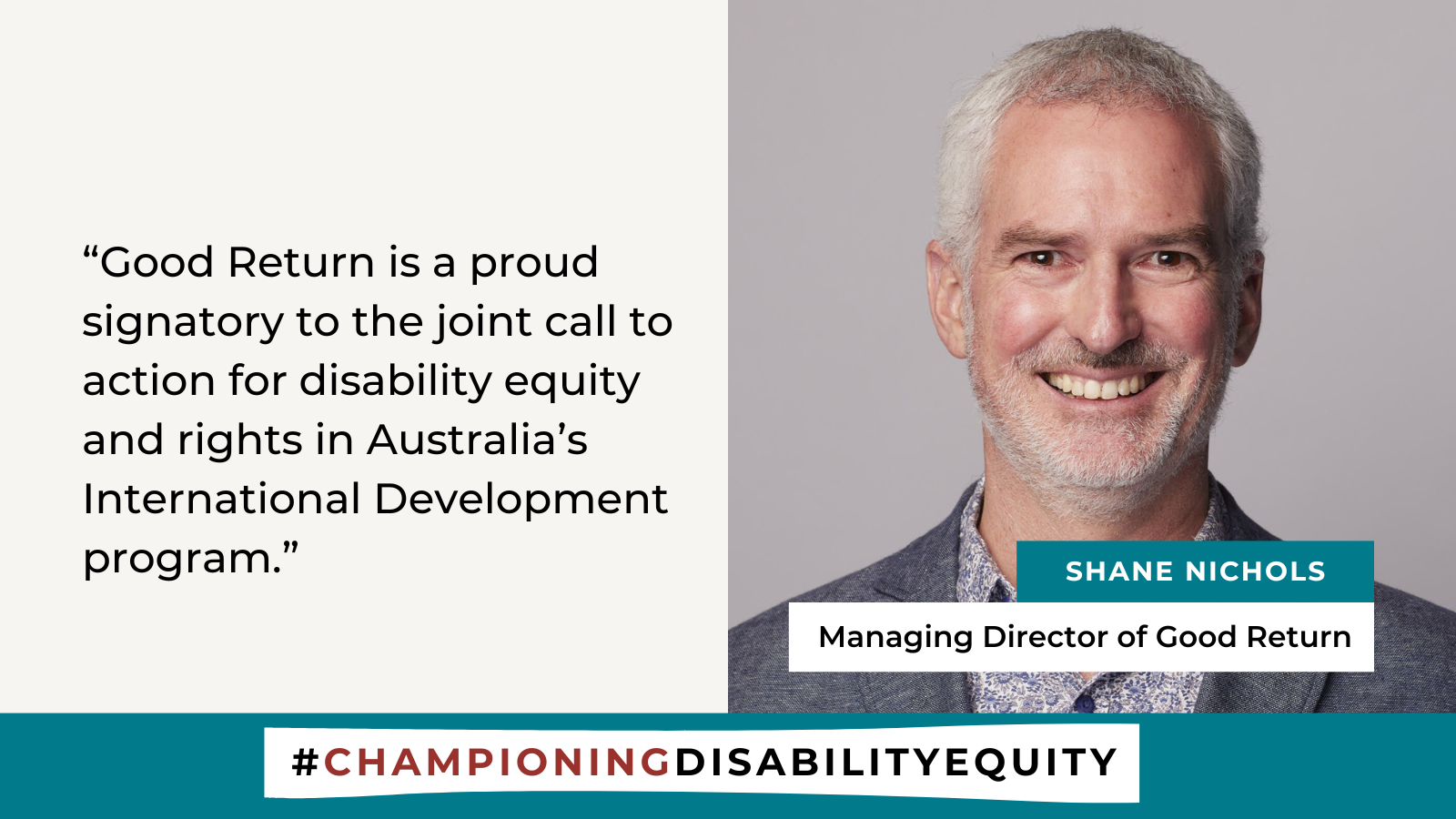
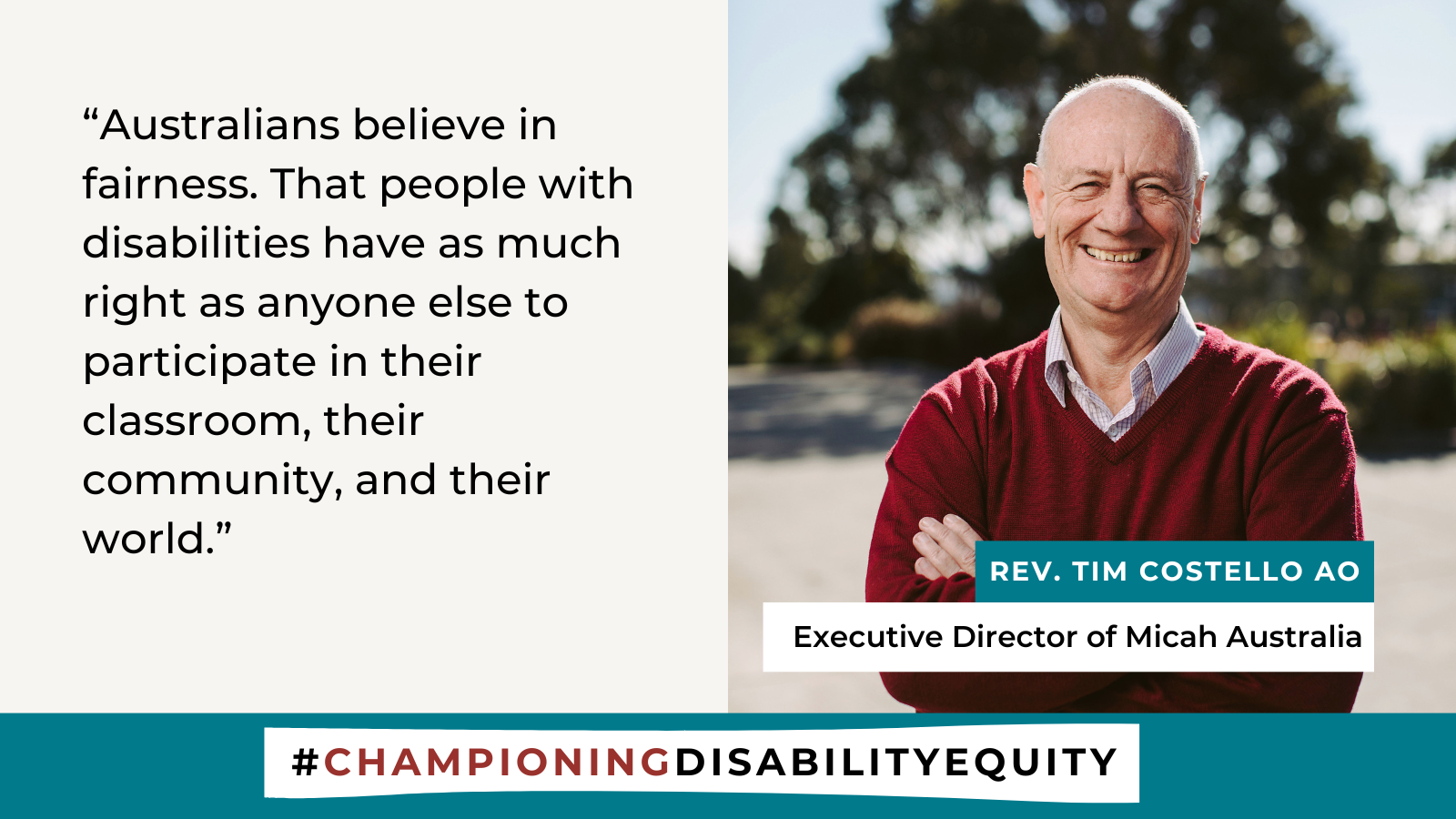
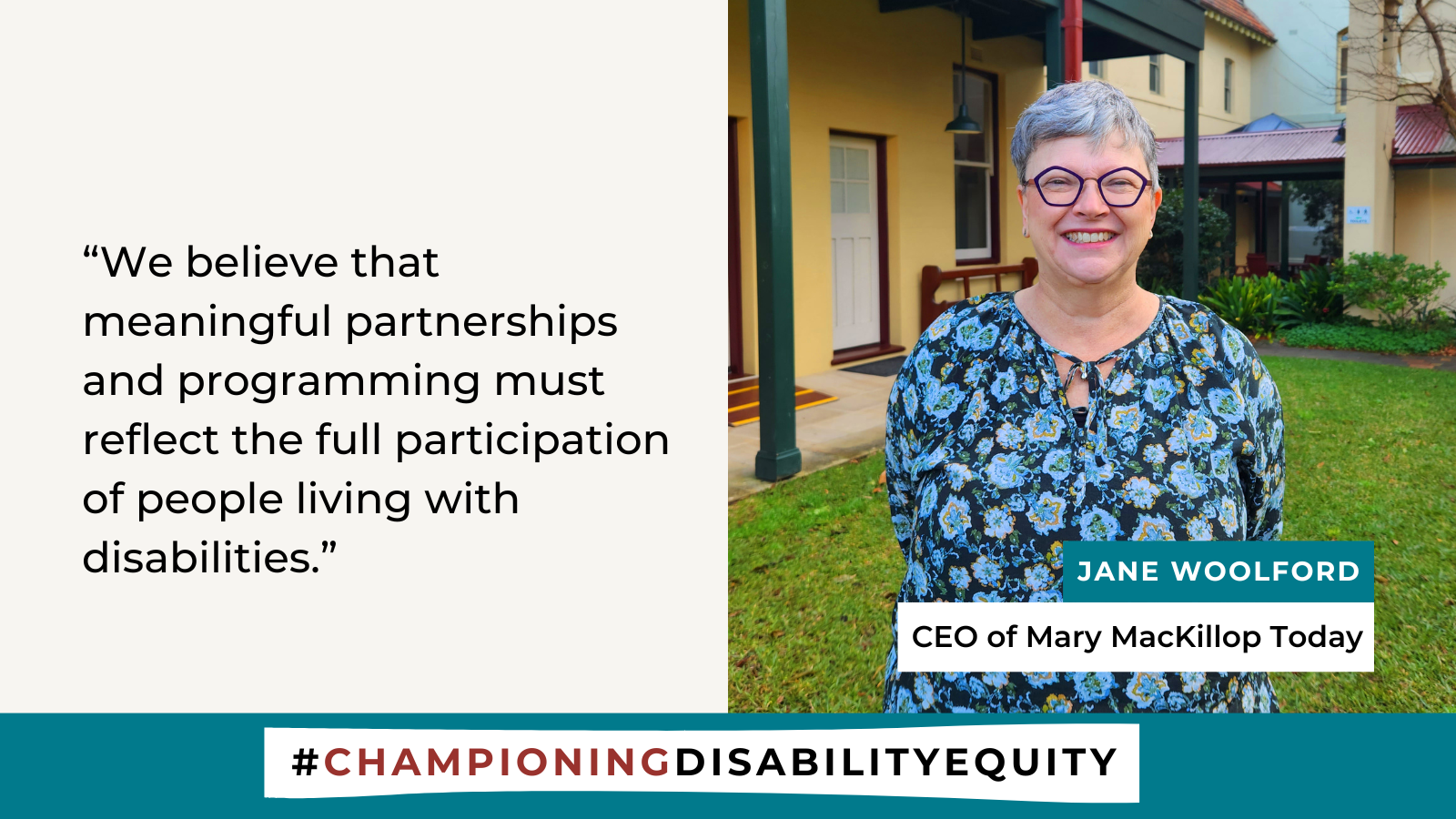
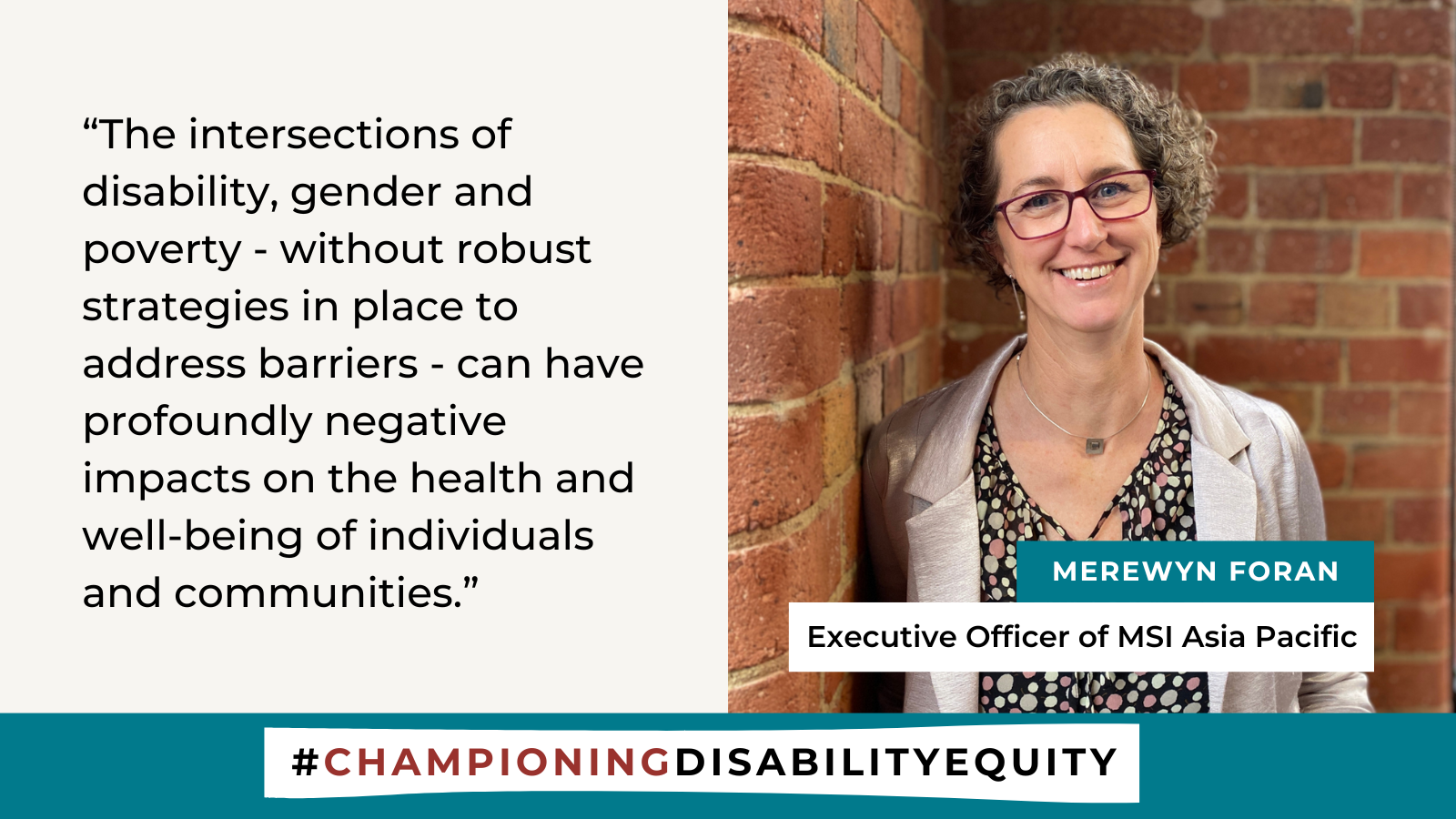
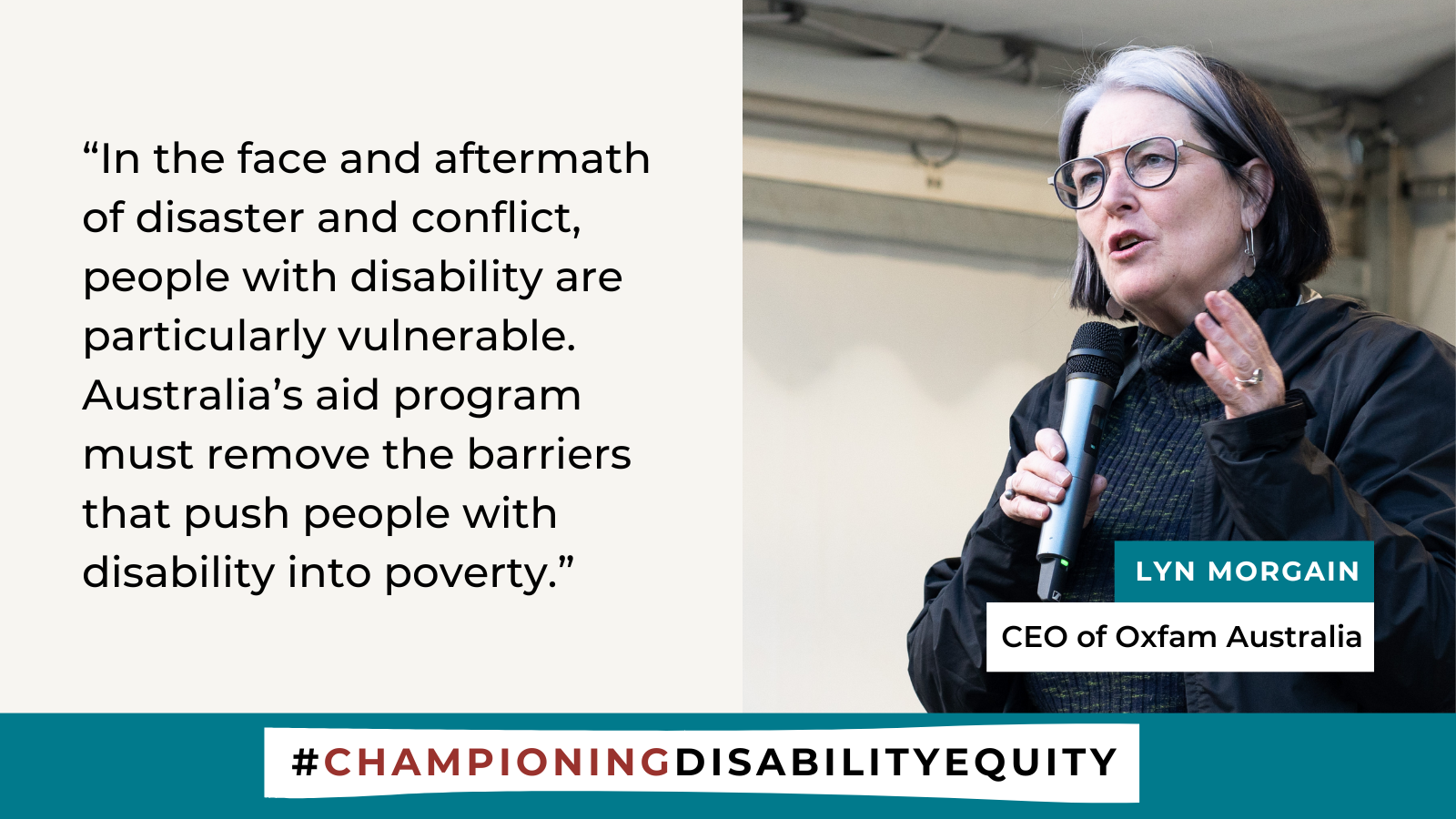
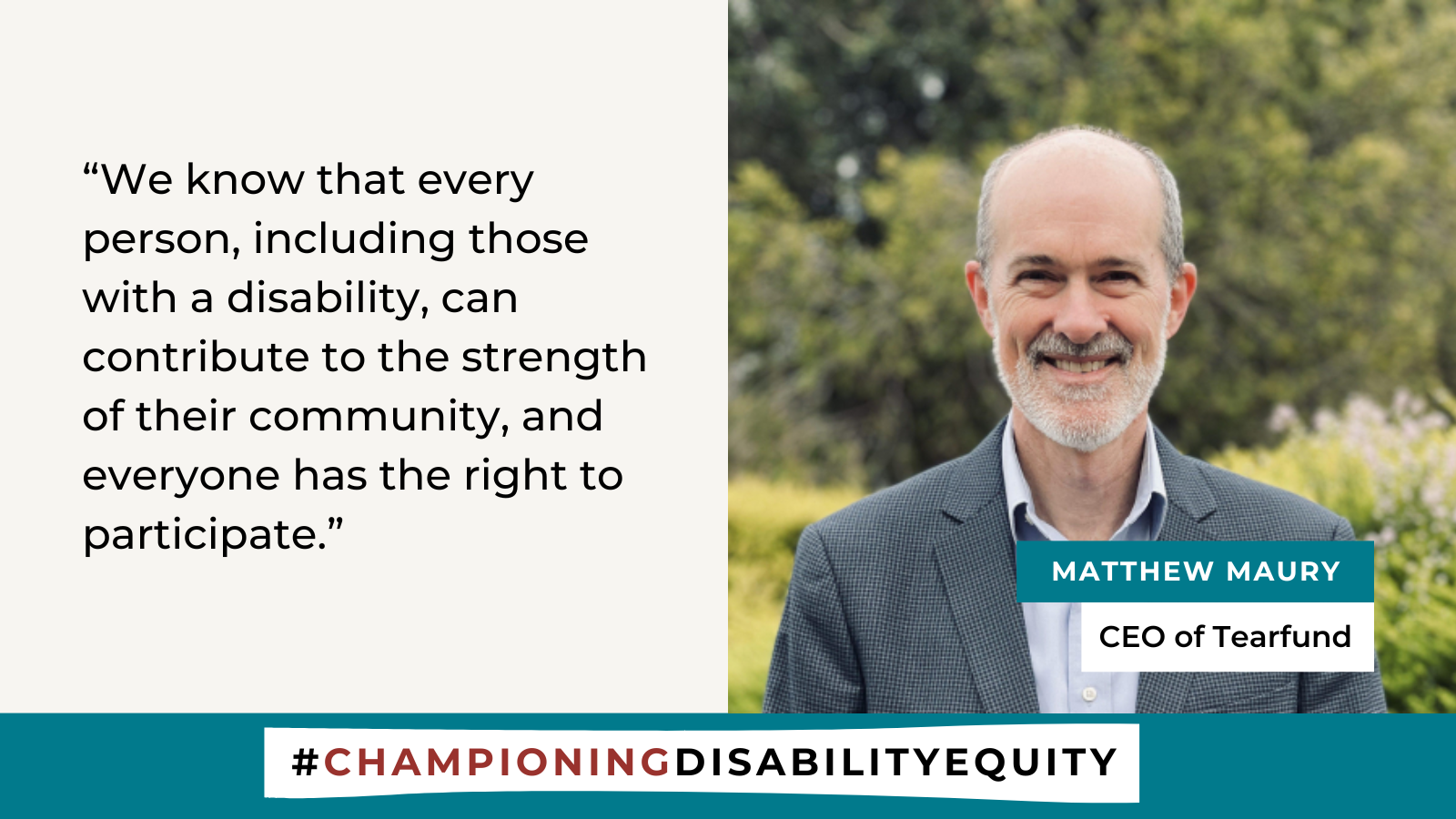
Joint Call: Joint Call for Action on Disability Equity
We, the undersigned, are seeking to amplify the need for the forthcoming International Disability Equity and Rights Strategy (IDEARS) to be ambitious, resourced and accountable.
In our region and around the world, people with disabilities are among the poorest and most marginalised across all communities. The World Bank estimates that 20 per cent of the world’s poorest people live with disability. As a result, they are often the people who feel the effects of adversity most harshly and are least likely to be included and supported through efforts to respond.
Australia has been a global leader in disability inclusive development for more than a decade. Our leadership has supported people with disabilities to be included in society and development efforts directly and has also resulted in many other countries and development actors improving their own approach to disability inclusive development.
But Australia’s leadership in this space has been hollowing out over recent years, with gaps in implementation from strategy to program level, a lack of strategic direction and stagnant funding.
Meaningful action on disability equity, particularly where it intersects with gender equality and other inequalities, will ensure Australia’s development efforts reach those experiencing the most acute forms of poverty within our region and globally. Mandatory requirements, targets and resourcing are essential to making this a reality, working in complement together.
We are calling on the Minister for Foreign and the Minister for International Development and the Pacific to ensure the strategy is:
- Ambitious: Set a 2030 target of 10 per cent of ODA being allocated to initiatives with disability equity as a principal objective, according to the OECD Development Assistance Disability policy marker.
- Accountable: Require the all in-country programs over $3m have a disability objective, and that 80 per cent of programs effectively address disability.
- Resourced: Increase the central disability allocation to $20m per annum increases thereafter in line with overall budget increases.
One in six people globally has a disability, including 700 million people in the Asia-Pacific region alone.
People with disabilities are unequivocally among the most marginalised in any context and are routinely excluded.
Australia used to be a global leader in disability inclusive development, though over the last decade, our leadership has waned, even in the face of growing needs. We don’t think that’s good enough.
Our government is developing a new disability strategy for the aid program, the ‘Disability Equity and Rights Strategy’. The strategy is a major opportunity to set commitments, expectations and resources that will save and improve the lives of people with disabilities in our region, their families and communities.
CBM Australia is joining the Australian Disability Development Consortium in calling for the upcoming strategy to be accountable, ambitious and resourced, and we’d love you to join us.
Add your voice to the call for the Foreign Minister and Minister for International Development and the Pacific to ensure that the new Disability Equity and Rights strategy is ambitious, accountable and resourced strategy.
Join us in shifting the dial towards disability equity.
If your organization would like to add their support to this joint call to action, email ADDC’s Executive Officer Kerryn Clarke here for more information and to receive a copy of the statement.
Below are the organizations that support this call to action as of 12 September 2024.
